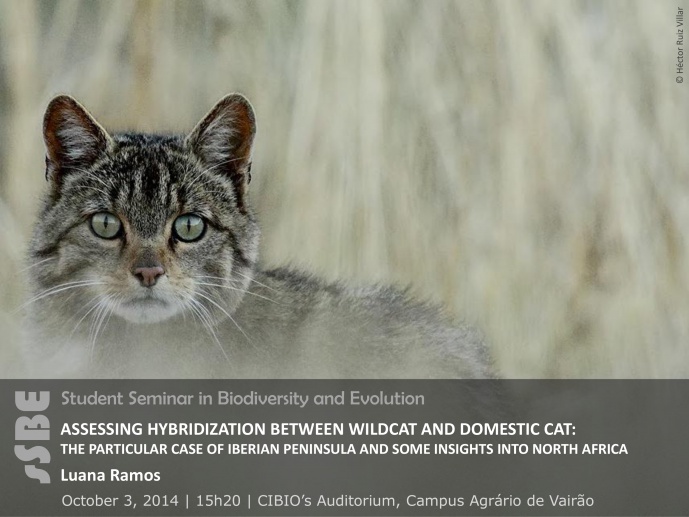ASSESSING HYBRIDIZATION BETWEEN WILDCAT AND DOMESTIC CAT: THE PARTICULAR CASE OF IBERIAN PENINSULA AND SOME INSIGHTS INTO NORTH AFRICA

STUDENT SEMINAR IN BIODIVERSITY AND EVOLUTION

The wildcat (Felis silvestris) is endangered by many threats, mainly human related. The concomitant effects of these threats are causing an increased contact between the wild and domestic subspecies with a consequent growth in hybridization, with potential introgression of domestic genes into the wild genepools. Many studies have been performed across Europe detecting distinct rates of hybridization. In particular, previous studies in Iberian Peninsula found low introgression with few hybridization events restricted to Portugal, although more recent studies indicate that admixture is probably more spread through Iberia. On the other hand, despite the evidences of possible introgression, African wildcat (F. s. lybica) is still poorly studied. In this study we aim to assess the hybridization between the domestic and the European wildcat across Iberia, including some studies at population level, and to provide some insights into the northern African subspecies, using a carefully chosen microsatellite set combined with Bayesian-based approaches. The results might help to improve conservation measures, ensuring the long time survival of this endangered feline.
Luana Ramos graduated in Biology by the Faculty of Sciences, University of Porto in 2012, and during her bachelor degree she started working in conservation genetics of the wildcat (Felis silvestris), studying hybridization between wildcat and domestic cat in Iberian Peninsula as an intern student at CIBIO-InBIO. Luana is currently finishing the second year of her MSc degree in Biodiversity, Genetics and Evolution in CIBIO-FCUP, under the supervision of Paulo Célio Alves and Pedro Monterroso (CONGEN Group). She has extended her previous work to her master thesis, during which she focused not only in strengthening the knowledge on the situation of European wildcats in Iberian Peninsula, but also in the study of the African wildcat in North Africa.
Image source: Héctor Ruiz Villar